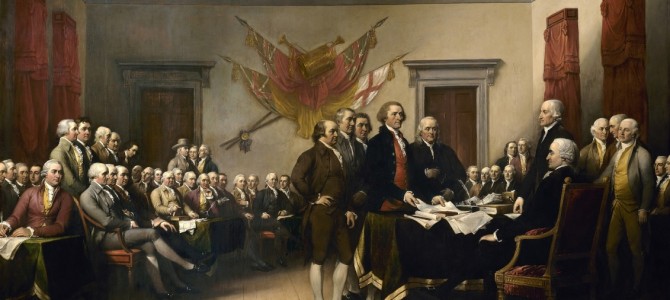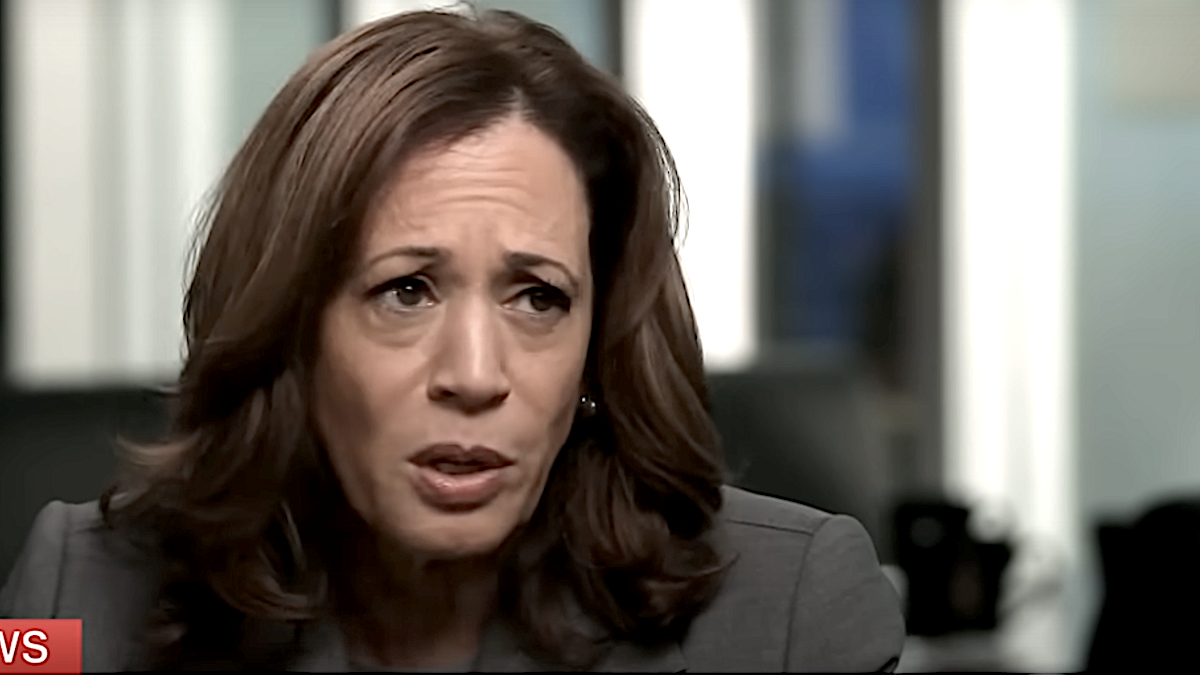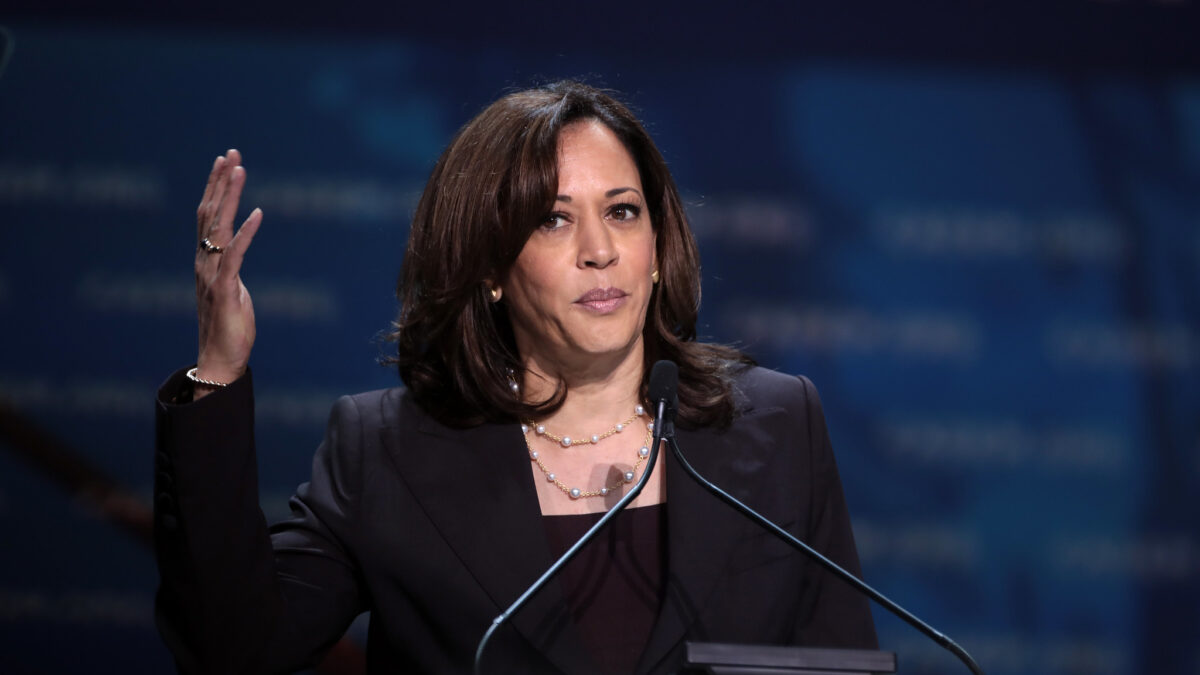
We’re honored to feature an excerpt of an interview of Yuval Levin by Charles Kesler. You can watch and read the first excerpt here and the second excerpt here. Levin is the Hertog Fellow at the Ethics and Public Policy Center, the editor of National Affairs, and author of, most recently, “The Great Debate: Edmund Burke, Thomas Paine, and the Birth of Left and Right.” Charles Kesler is a senior fellow at The Claremont Institute and editor of The Claremont Review of Books.
Charles Kesler: Neither [John] Adams nor [Alexander] Hamilton or any of the other critics of the American Revolution and critics of [Thomas] Paine would ever abandon what they regarded, I think, as their common premises, or at least those premises which they, in fact, had in common such as natural rights and species of equality and civil society by consent and so forth. Is it a good thing to have a conservative party or a conservative opposition that also stands on the Declaration of Independence, or is it better to have a conservative opposition that is critical or wary of it in some of the ways, say, that Burke or Burkeans since have been?
Yuval Levin: I think that you have to start with the Declaration of Independence. Not only because it is at the beginning of our story, but because it is true, especially because it is true. Its truth is more complicated than simply the first two paragraphs of the Declaration of Independence. There’s a question in the Declaration which is not answered. I think one way of phrasing that question is whether or not the regime that preceded the British mistreatment of the Americans was a legitimate regime. The list of grievances that ends the Declaration suggest that it was, that one of the wrongs done to the Americans by the North administration was taking away the form of government they had before.
There’s another way to read the Declaration as an entirely new beginning, on new principles. That would suggest that the government they were living under before was an illegitimate government.
I think both of those ideas are actually in the Declaration. The debate about the Declaration is therefore, in part, a debate between those two views. I think that there’s a Burkean reading of the Declaration of Independence that sees it as trying to save what was legitimate and right about the regime that preceded the terrible acts that led to the revolution, rather than a starting anew, starting fresh from entirely new roots and on entirely new foundations.
That, to me, is a conservative radical debate, a conservative progressive debate. It’s a very American debate. I think what it means for conservatives, in part, is that we do have to see the progressives that we fight with as, themselves, rooted in American life. They’re not simply an innovation, an imported idea from Germany. Of course, there’s a lot of truth from that too, but it does draw on a tradition that is Jeffersonian in some important respects. The people who made that argument, the Herbert Crolys, were not simply wrong, though they were not comprehensively right.
It also means that in drawing on the Declaration, we have to think about it both as a conservative document and as a radical document. As true in both respects, the liberal society always contains that debate. I think that’s another reason why thinking about our roots as a debate is a healthful way to think about them because our roots are both Burkean and Painean. Our roots are both radical and conservative. The tension between the two is why our society has remained free for long as it has.
That was not the case with the French Revolution, for example, which was simply a radical revolution. Lacking that tension, went off the rails very quickly. Americans have always had a legitimate argument about whether we are a conservative or a radical country and the answer is yes. That means that we are always going to live with a left right debate.
Charles Kesler: Depending on what you mean by radical and conservative, obviously. But who ever said, except Paine, that the teaching of the Declaration of Independence, or whatever you want to say, it fit into that place, was condemn the previous British government as inherently unjust. The whole argument of the Declaration is it was a monarchy, which was a good form of government, mixed with some checks and balances, as it were, in, but it became a tyranny and when it became a tyranny it was insufferable and that’s when we had to revolt.
Yuval Levin: Paine is very explicit in rejecting that view, right? Common Sense says that monarchy is a legitimate form of government
Charles Kesler: Nobody else had really said that, right?
Yuval Levin: That’s right, but you have to ask yourself-
Charles Kesler: Others joined in, maybe, after he said it.
Yuval Levin: Yes, I think that Jefferson later on, at least, suggests that monarchy isn’t a legitimate form of government. Once the revolution had been launched the way it had been launched, I think there was a kind of Jeffersonian party that, in accusing Adams and Hamilton and others of being monarchists, were accusing them of being despots and saw the two as simply the same thing. I don’t think it’s entirely unfair to read Jefferson’s writing that way even before the revolution and his private letters that way. He was careful not to say so. Maybe he didn’t think so, but we should take him seriously, we should take him at this word. I don’t think that Paine’s reading of the question of the revolution is all that crazy. That idea is, at least, legitimately readable in some forms of the Declaration.
Burke, I think for that reason, though I don’t know why, never talks about the Declaration of Independence. We know that he knew about it. He was present physically in Parliament when it was read to the members. He heard it read, he never speaks about in any of his speeches about America, which came after the Declaration, two of them did. He never writes about it, even in his private letters. He writes an enormous amount about American and Americans. He knew a huge amount about what was going on here. The name of Thomas Jefferson never appears, even in his private letters, except in its being mentioned by Paine in letters to Burke.
He was very uncomfortable with that element of the American Revolution, even as he was essentially a supporter of the Americans in the debate about the American war in Britain. I think that was, largely, what he was uncomfortable with. The fear that this really was a radical revolution of the sort that he later saw embodied in France.
Charles Kesler: If you apply Burke to Burke and you ask what is circumstantial about his own formulations. Don’t you have to raise the possibility that his own view of the British constitution is in reaction to what he was as the premiere threats to the British Constitution and his own gradualism is, perhaps, overstated precisely because of all the countries in Europe, certainly one of them that had the most political discord, the maximum number of kings with heads chopped off and of revolutions and of churchly changes and so forth would be Great Britain. In many ways it was a basket case crying out for someone to pour oil on those troubled waters and in a way that’s what Burke’s formulations do.
Yuval Levin: I think that’s true, but does that argue for seeing him as responding to circumstances or does that argue for seeing him trying to apply principles that were not actually evident in his circumstances to the extent that he claims they were to the political life of Great Britain.
Burke offers a history of Britain, especially in the reflections of the revolution in France, which is preposterously wrong, and he certainly knows that. He was criticized by some friends. There were some great letters about this where fans of the reflections write to Burke saying, “The British don’t deserve your descriptions of them. This isn’t who we are.” Burke more or less says, “Well, it’s who we ought to be and the best way to persuade us to become that is to say that we already are that.”
I don’t take that to be evidence of Burke’s just responding to his circumstances. I think on the contrary, it’s evidence of his trying to apply a set of beliefs and principles that he thought would improve his own country to a country that he thought was in need of that kind of improvement.
Charles Kesler: Does it raise the possibility or the likelihood that if he had been in America, he would not be the Burke that we know?
Yuval Levin: Well, it’s a possibility.
Charles Kesler: He would either be American, or he would sound more like an American figure.
Yuval Levin: I think there’s no way that he wouldn’t have been a conservative in the generation of the American founders, and there were conservatives in the generation of the American founders. I don’t think he would have sounded all that different. He would certainly have been responding to different circumstances and debates and problems. The answer that he offered to those was an answer that was very much applicable in American, and in some respects present in America. Burke very seriously considered moving to America as a young man. He was very interested in America.
Charles Kesler: As an Irishman, you mean?
Yuval Levin: As an Irishman, yes. A protestant Irishman, so he would have been allowed to do it. He and a friend of his, Charles O’Hara, thought very seriously about it and made plans to do it. Then Burke got married and his wife, as he puts it in a wonderful letter to O’Hara, “Just has no interest in being in being scalped by an Indian chief.” They lived instead in London, they stayed in London.
He was fascinated by America and especially by the spirit of liberty in America. In the American speeches around the time of the revolution, he’s constantly drawn back to that and sees that as what is unique about the American character and what parliament should recognize about the Americans, which is this constant, profound alertness to threats to their personal liberty. This is what made the Americans Americans. I think Burke was very drawn to that and shared in that to a great degree.
He was also a great believer in the importance of continuity and of stability. That was his case for the American Revolution. There was such a case for the American Revolution. I think it’s an important part of what it is that conservatives are trying to conserve.









